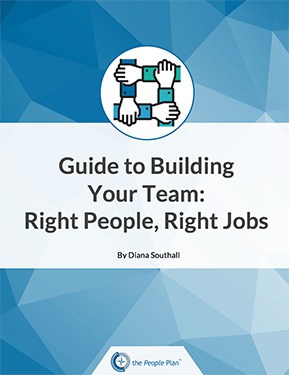Our prior article “What Drives Engagement?” listed the top 10 engagement drivers.
Three areas impact employee perceptions of available development and career opportunities (category 4):
1. Enjoy challenging work assignments that broaden skills
2. Improved my skills and capabilities over the last year
3. Have excellent career advancement opportunities
Many people are comfortable and happy in their current job and do not wish to take on additional responsibilities.
Others crave challenging work and the opportunity to learn and grow. A key component in keeping the second group of employees at your organization is to figure out how to meet these needs.
If you are small business, you usually do not have a “career paths” or a training department. However, you have many informal opportunities for additional development—these include cross-training, job enrichment, project assignments, and team lead opportunities.
It is always best to have a “back up” for each role– and developing someone as a backup cross-trains another team member and gives a sense of skill development. Job “enrichment” means learning a bit deeper or broader on current tasks, such as increasing knowledge of accounting principles or equipment repair. We can always learn more about the work we do.
Even if your organization does not have “layers of management,” some employees are interesting in a newly emerging role of team leader. Team leaders are the “go-to” people who peers ask for help or to get another opinion for a decision. They often assist managers with routine supervisory tasks such as scheduling, assigning specific work, compiling reports, and side by side skill training. You may have someone now that is informally in this role.
Three steps you can take NOW to improve employee perceptions of development opportunities
- Think of one project or ongoing task that would be a stretch assignment for a team member, and delegate to someone with the competencies to accomplish.
- Spend 30 minutes one morning each week meeting with a team member to discuss “What skills or knowledge do you want to develop in the next year? How can this be accomplished?” Then create a timeline and action plan to achieve.
- Identify and start developing a team leader: If you have a great performer with interpersonal skills and a desire for additional responsibility, start with delegating a routine team task (scheduling, weekly project report, train new employee). If this person continues to grow in this role, create a team leader position with specific responsibilities and coach to achieve.
Two articles for more reading
For a source of stretch assignments, read our People plan article: “Too busy to delegate”
Inc Magazine article How to Tell If Your Employees Are Bored
Image courtesy of basketman at FreeDigitalPhotos.net




